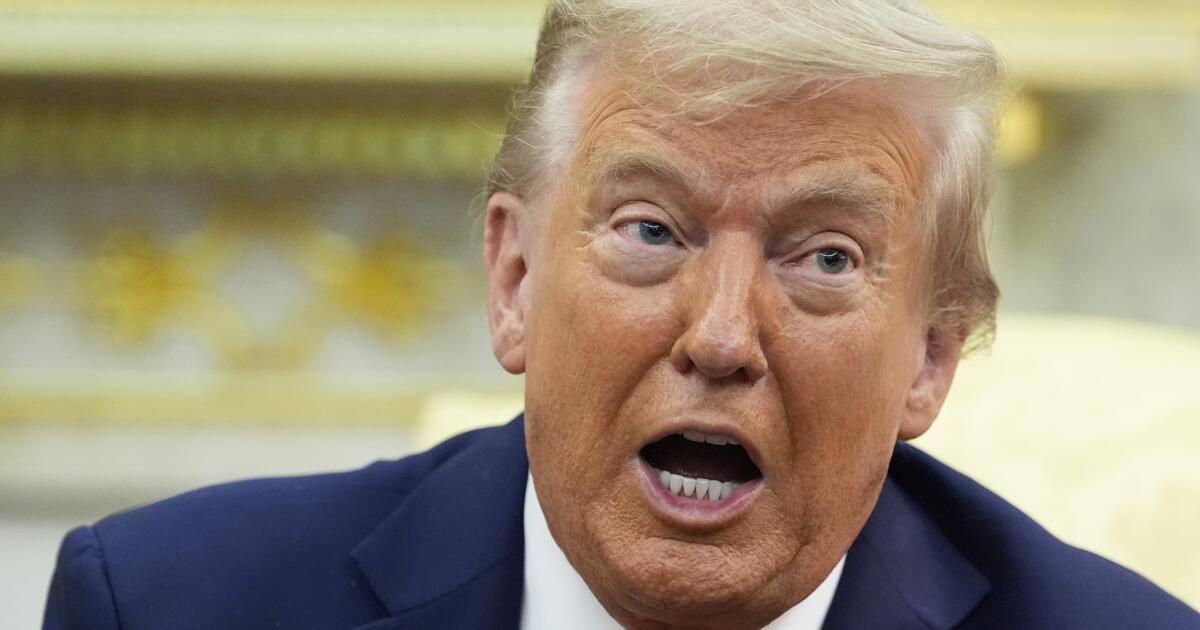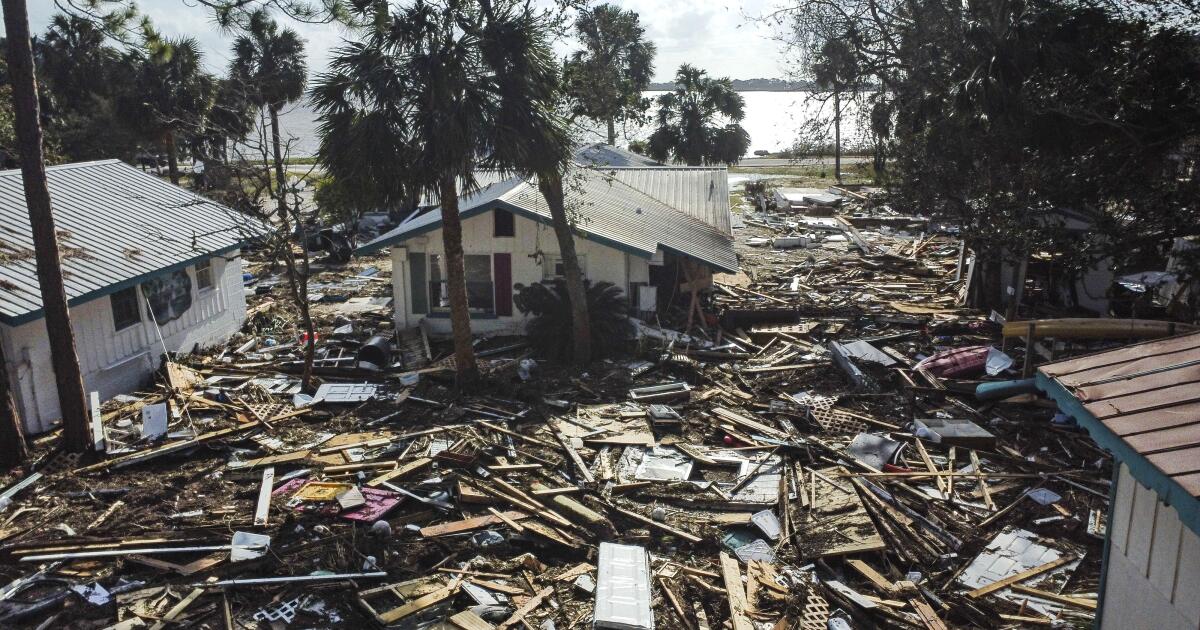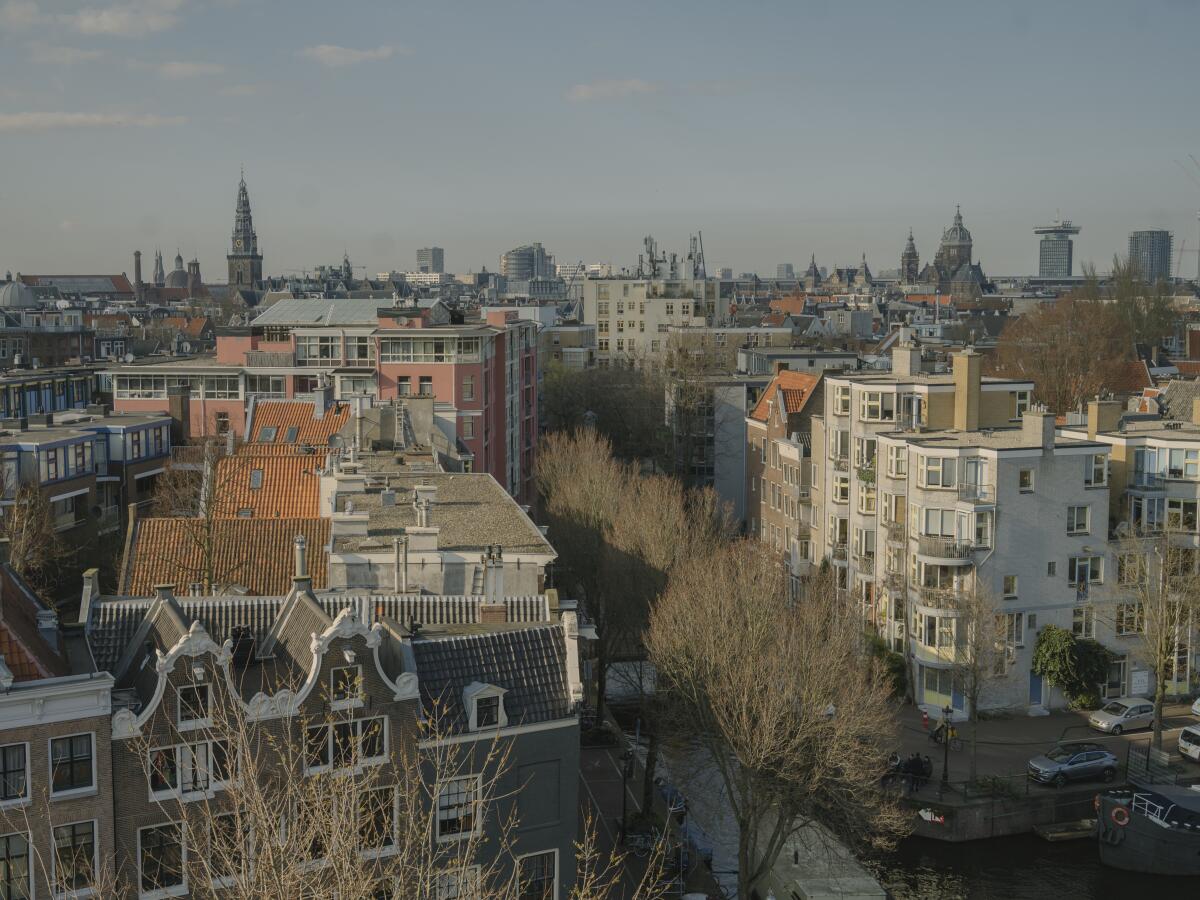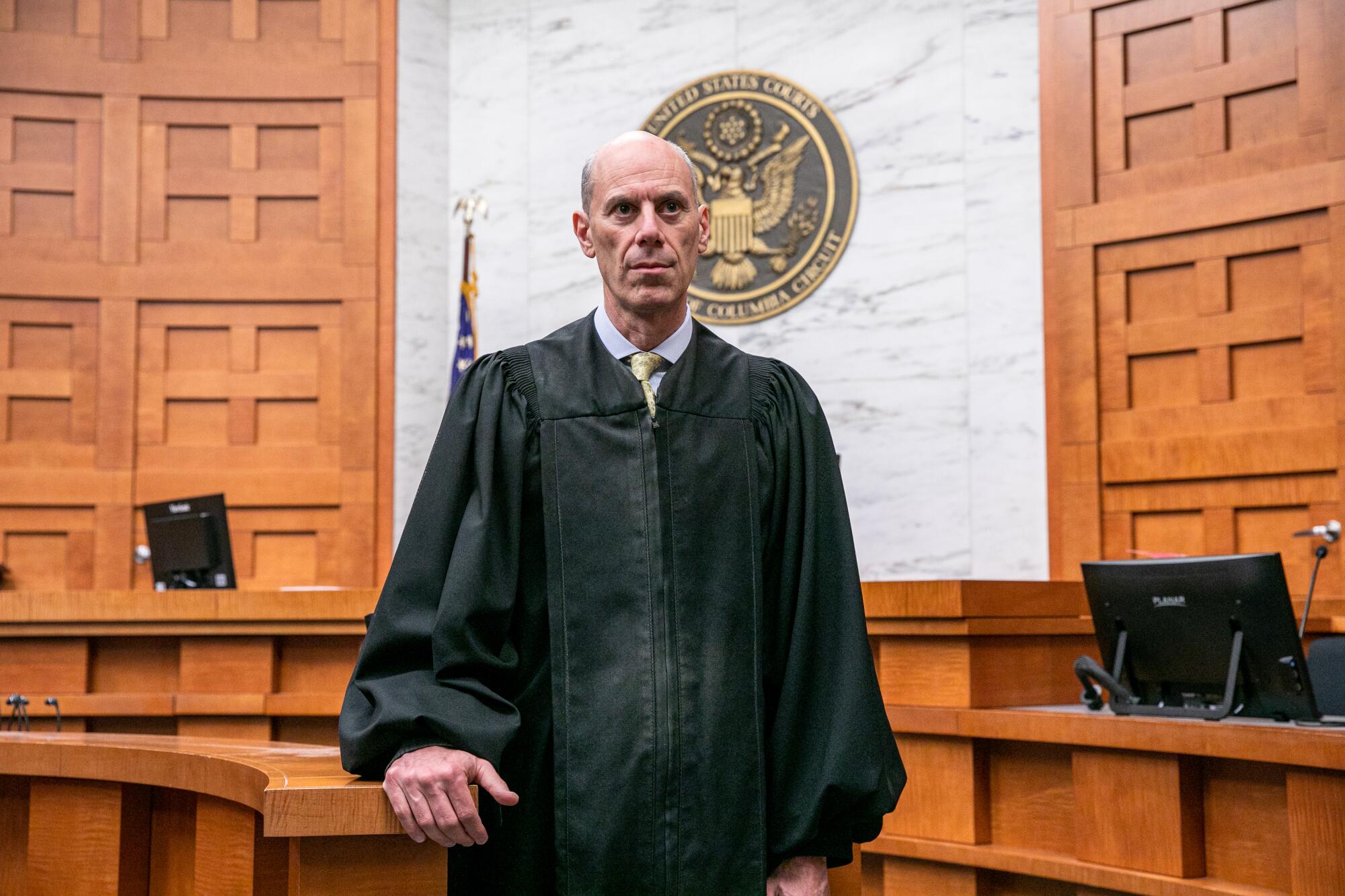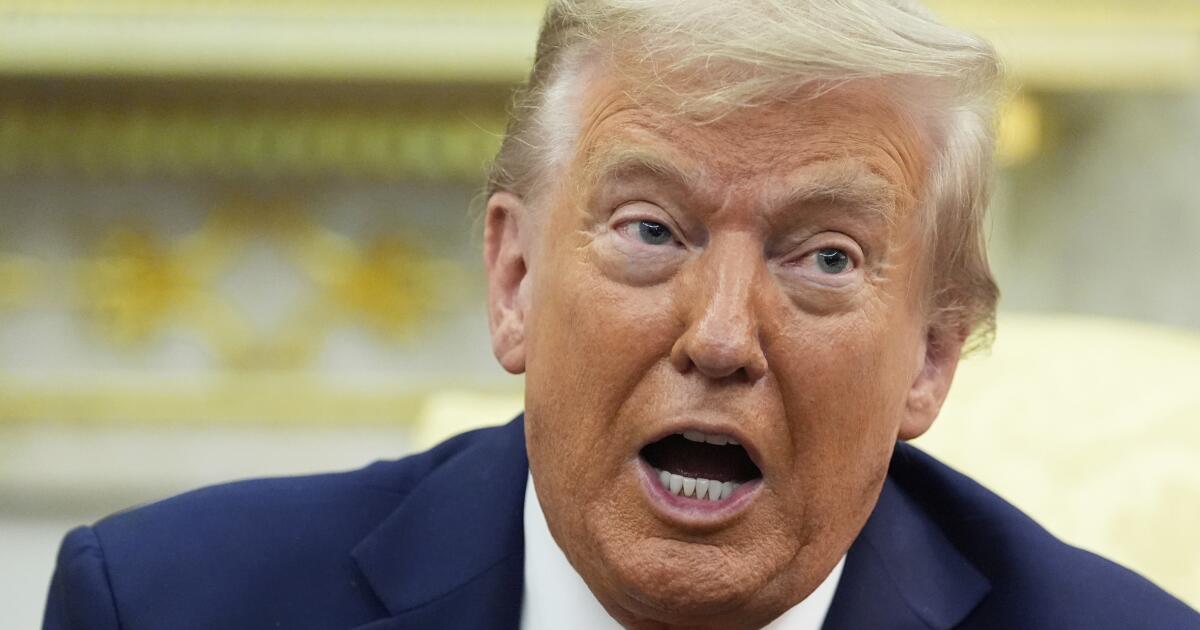
WASHINGTON — President Trump took executive action Monday threatening to cut federal aid to cities and counties that offer cashless bail to criminal defendants, a move that could place Democratic jurisdictions throughout the country under further financial strain.
Trump’s first executive order specifically targeted the practice of cashless bail in the District of Columbia, where the president has sent National Guard troops to patrol the streets. His second action directed the Justice Department to draw up a list of jurisdictions that have “substantially eliminated cash bail as a potential condition for crimes that pose a clear threat to public safety and order” — a list that would then be subject to federal funding cuts, the White House said.
“That was when the big crime in this country started,” Trump said. “That was when it happened. Somebody kills somebody, they go and don’t worry about it — no cash, come back in a couple of months, we’ll give you a trial. You never see the person again.”
“They thought it was discriminatory to make people put up money because they just killed three people lying in the street,” he added. “We’re ending it.”
Trump does not have the power to unilaterally change D.C. law. But administration officials hope the threat of significant financial pressures on the city will force local lawmakers to change it themselves.
Similarly, his second order could ultimately result in cuts to federal grants and contracts with Los Angeles County, where courts use cash bail only in the most serious criminal cases.
Studies have not shown a correlation between cashless bail policies and an increase in crime.
As of October 2023, nearly everyone accused of misdemeanors or nonviolent felonies in Los Angeles County is either cited and released or freed on certain conditions after their case is reviewed by a judge. The judge can offer other conditions for release, including electronic monitoring or home supervision by probation officials.
“A person’s ability to pay a large sum of money should not be the determining factor in deciding whether that person, who is presumed innocent, stays in jail before trial or is released,” then-Presiding Judge Samantha Jessner said at the time.
A spokesperson for the court said recently released data showed the system “protects public safety more effectively and provides a fairer, more rational alternative to money bail.”
Some advocates who pushed for the new bail policies said they saw Trump’s executive order as a purely retaliatory move against the region’s liberal politicians.
“L.A. County is being retaliated against by President Trump for a number of reasons that have absolutely nothing to do with public safety,” said Janet Asante, a spokesperson for Justice LA Coalition, which pushed for the bail reform. “Regardless of if L.A. County had zero bail or not, we would be facing significant fiscal retaliation from President Trump.”
The county policy has proved controversial, with some cities saying they believed the lack of cash bail would make their communities less safe. Twelve cities within the county sued unsuccessfully to block the cashless bail reform, arguing it would lead to higher crime rates and violated the court’s responsibilities to uphold public safety. Sheriff Robert Luna told the supervisors in 2023 that some communities were alarmed at the “lack of consequences for those who commit crimes.”
The sheriff’s office did not immediately respond to a request for comment.
Public Defender Ricardo D. Garcia said he believed cash bail “punishes people by keeping them caged simply because they cannot afford to pay.”
“While this does not directly impact LA County, I am deeply concerned about any policy that undermines efforts to reduce pretrial incarceration and undoes progress toward a more just criminal legal system,” Garcia said in a statement.
The county had initially begun a zero-bail system during the pandemic to prevent crowding in jails. A report to the Board of Supervisors found instances of rearrest or failure to appear in court remained relatively stable despite the change.
In the fall of 2022, six people sued the county and city, arguing they spent five days in custody solely because they could not afford bail, leaving them in “dismal” conditions. Demanding cash bail created a “wealth-based detention system,” the plaintiffs alleged. The suit led to a preliminary injunction barring the city and county from enforcing cash bail requirements for some people who had yet to be arraigned.
Gov. Jerry Brown signed a bill in 2018 to end cash bail across California. Voters nixed it after the bail bond industry spearheaded a campaign to send the measure to voters. The referendum was defeated in 2020 with 56% voting “no.”
Trump also signed an executive action directing the Justice Department to investigate and prosecute individuals for burning the American flag, calling it an act of incitement, despite standing Supreme Court precedent that doing so is an expression of free speech.
They were the latest steps in a spree of executive actions from Trump ostensibly targeting crime in the United States, following Trump’s deployment of Marines and the National Guard to Los Angeles in June and his federalization of the National Guard in D.C. earlier this month.
He has threatened to launch similar operations with federal forces to New York and Chicago, despite local officials telling the Trump administration that the deployments are not necessary.
“They probably do want it,” Trump said. “If we didn’t go to Los Angeles, you would literally have had to call off the Olympics. It was so bad.”
Ahead of the 2028 Olympics, to be held in Los Angeles, American cities should be “spotless,” Trump added.
Wilner reported from Washington, Ellis from Los Angeles.
